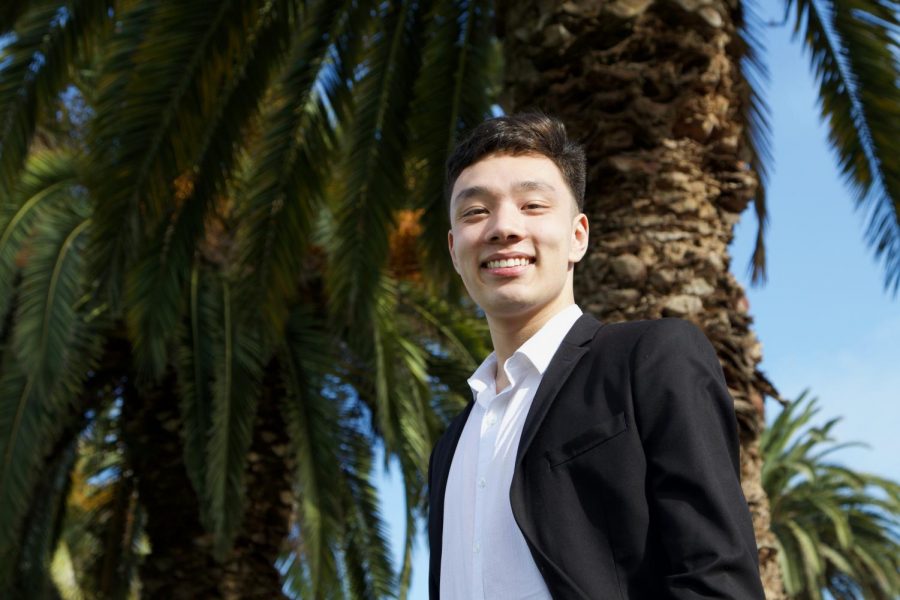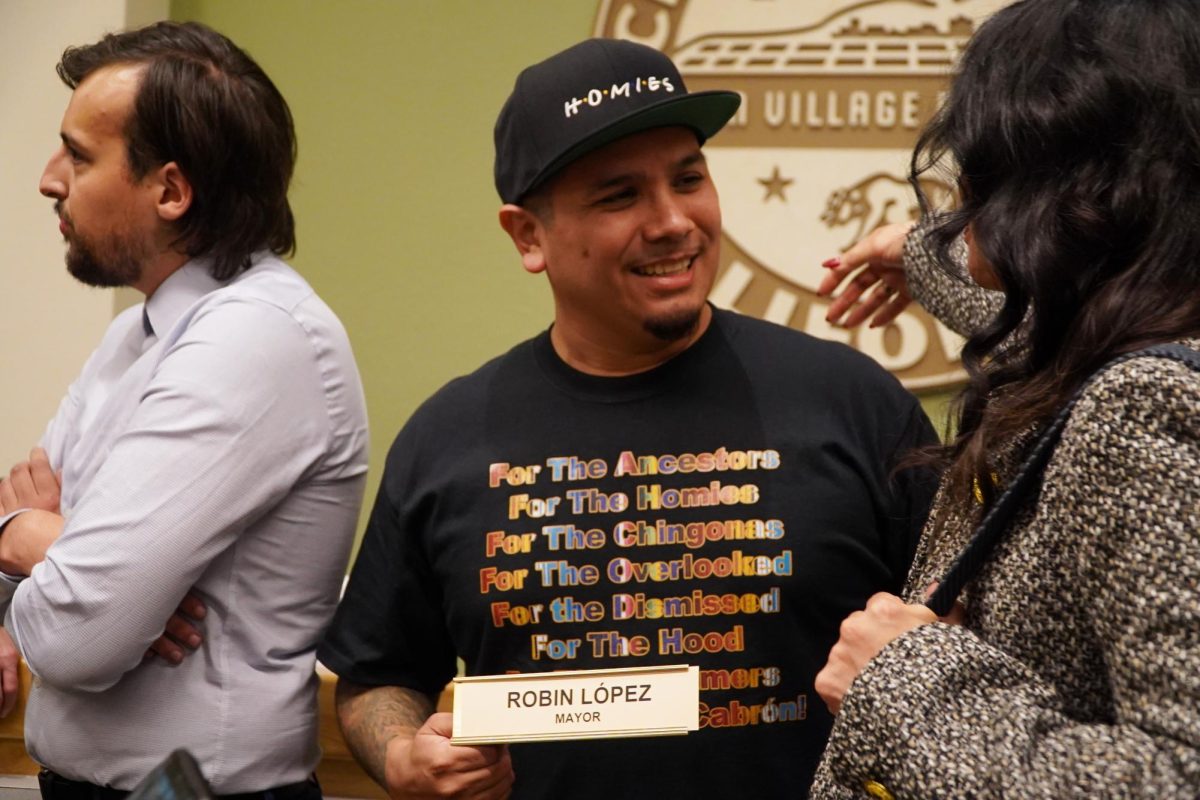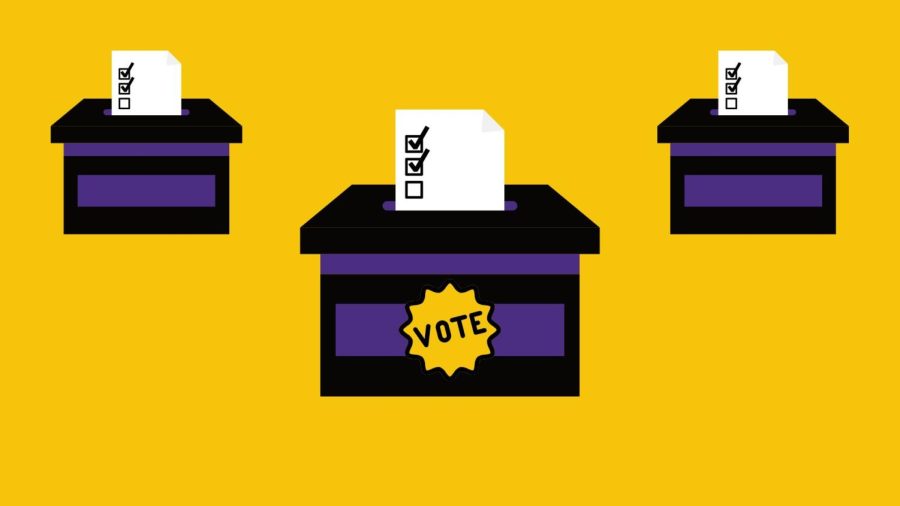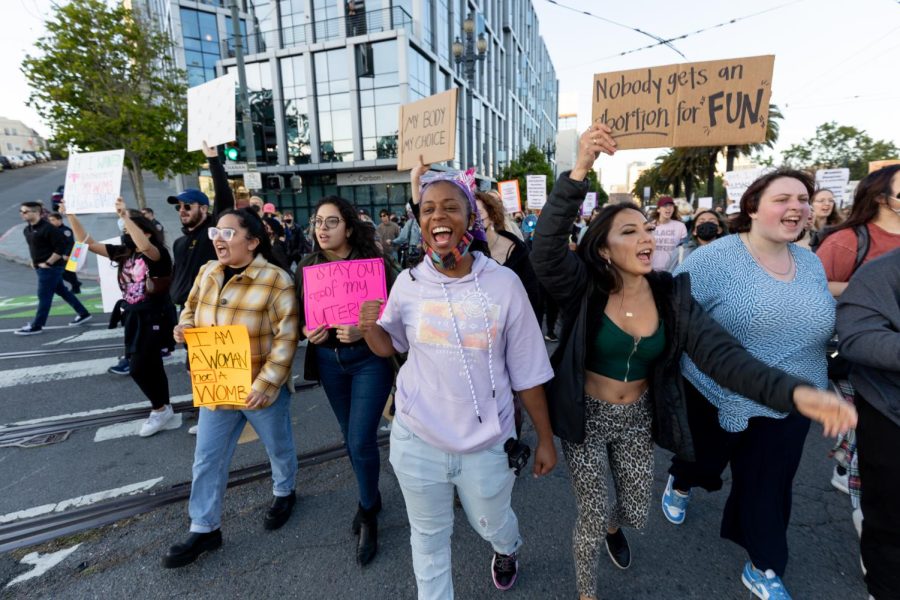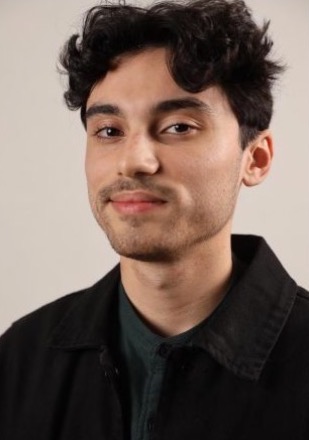The official city council campaign launch of 21-year-old James Coleman held the welcome surprise of being both soundtracked by John Lennon’s anthem “Power to the People” and being populated and voiced by prominent community figures of South San Francisco. Former South San Francisco High School teachers, alumni and others in the community were divided into listeners or impassioned speakers on this Zoom conference call, which orbited around some of the nation’s most current issues, such as housing and COVID-19 protections, localized to the concerns of the community of South City.
Coleman would be the youngest and first openly LGBTQ+ city council member if elected to represent District 4, which Mayor Richard Garbarino currently represents, of SSF. Coleman is running on a platform of affordable housing, universal pre-K, COVID-19 relief, public safety improvements and a plan of decarbonizing South City. He has also stated that he will not be accepting any financial donations from fossil fuel companies, corporations or private developers. Coleman has also received the notable endorsements of the Peninsula Young Democrats, CHANGESSF, Pacifica Mayor Deidre Martin and Senator Scott Wiener.
Coleman, who is of Taiwanese descent, is a student at Harvard University with a concentration in human developmental and regenerative biology with government and a researcher of neuroscience at Massachusetts General Hospital. He has also been a director for TEDxHarvardCollege. He grew up in the Avalon Park area of South City and attended South City public schools for all of elementary, middle and high school.
While at Harvard, Coleman worked with campaigns that advocated for equitable conditions for essential workers at his university. He also marched with hundreds of climate protesters, disrupting a highly anticipated Harvard-Yale game, to demand fossil fuel divestment.
Franchesca Mae Buendia, Coleman’s campaign manager and long-time friend since high school, said that the idea of running for city had circulated between them as a mutual joke long before it ever cemented into a solid plan. Coleman officially filed to run for city council on Aug. 6, and held his campaign launch on Sept. 12.
“He just texted me, ‘Hey, I’m going to be running for campaign for city council,’” Buendia said. “And he actually did it. I have so much faith in him to do it because he’s just such a go-getter, and he really is aligned with his goals.”
According to Buendia, SSF city council does not play an inordinately personable or intimate role within the larger South City community. Despite Garbarino’s having been in office for over 18 years, prior to this campaign experience, Buendia said she had not seen or heard of the mayor in her day-to-day life. Buendia said she and Coleman wished to reverse this.
“I wish to see an actual community figure and a real person,”Buendia said. “I don’t think they’re [city council] not real people, but like I said, an active member that shows that they lived and grew up here would be nice to have been representing us.”
Coleman returned to South City at the onset of the COVID-19 pandemic, when universities and colleges were forced to send students home. He began involving himself more intimately, working with local groups and going to city council meetings to petition for change with local politics, following the killing of George Floyd and the subsequent wave of calls for police and civic reforms. He, along with members of the grassroots coalition CHANGESSF, petitioned SSF city council to divest funds from SSFPD to other municipal services.
Liliana Rivera, a representative of CHANGESSF, stated during the Zoom campaign launch that she felt, despite a resolution passed in August pledging to address equity issues, the city council was tone-deaf to the concerns of SSF natives.
Rivera elaborated that a point of enervation for CHANGESSF, and for many in the community, was Garbarino and city council’s decision to not read the numerous public comments submitted to them. Buendia said she did not think the city council or the mayor were playing an active or involved role in the community to create recognition or approachability.
Coleman cited this recurring grievance as one of the primary frustrations that motivated him to campaign for elected office.
“[City Council was] very dismissive, not reading out the public comments was something, also not including CHANGESSF in the discussion of the formation of the commission [of racial and social equity]; that was also very disturbing,” Coleman said. “You know, considering that they were forced to make the commision because of so much civic frustration with the city council.”
During the city council’s formation for the Commission of Racial and Social Equity, several CHANGESSF members and other residents from the community raised questions surrounding who would be selected for the commission, what criteria would be implemented and how the commission would operate. The city council declined to directly answer these inquiries, according to Coleman, who felt that was indictivate of a larger trend of non-transparency within the city council, something he hopes to rectify.
Coleman’s opponent, Garbarino, has not shown sufficient support for the city’s most vulnerable community members, CHANGESSF wrote in a statement endorsing Coleman, by member Kanani Cortez. The coalition stated that the city council is more invested in maintaining the city’s police budget rather than concrete progressive action. It also decried the fact that SSF Police Department Chief Jeff Azzopardi was allowed a seat on the Commission of Racial and Social Equity, while members of other relevant municipal entities, such as the Public Library and Park and Recreation Department, were denied.
“The original purpose of the commission on racial and social equity was to bring forth the voices of the most marginalized and provide a space for genuinely moving forward social change,” Cortez wrote in the statement. “Instead, the mayor immediately went back on this idea and created a task force in which the city filled positions with people in power who have no desire to reform the institutions which they represent.”
Garbarino, in a public statement titled “There is more than one virus to cure in our cities Today,” addressed concerns of racism in the community and the plans of city council to remedy those issues, such the creation of the commission. Garbarino wrote that city council members are not “distant or lofty” figures but in the “trenches” with the community. He also encouraged South City, and the larger state of California, to embrace the recent conversations orbiting racism and discriminatory practices in law enforcement as an opportunity for self-examination.
“A lot of people feel the need for change because our city council has had the same people for the last 20 or so years,” Coleman said. “Whether it be the pandemic or the economic downturn or climate change or racism in our systems of public safety, they feel that there is a need for change and that there is a need for new leadership and new ideas, a fresh perspective, etc.”
Coleman elaborated on two of his platform’s key points, affordable housing and the decarbonizing of SSF. He stated that he thought the city was not currently creating enough new affordable housing, as the city currently has a 15% requirement for affordable housing for new developments.
“Our city has a history of approving developers to make a certain amount of affordable housing,” Coleman said. “Developers walk back their promises and build luxury housing. And I’m talking specifically about Cadence apartments [in East Side SSF].”
Cadence apartments currently have an average price of around $2950.50 for a one-bedroom apartment. Coleman explained that he hopes to prevent developers from continuing to walk back on their promises to build affordable housing by making it economically unfeasible for them to do so through a raised impact fee, or by incentivizing neighborhoods to create more affordable housing.
On the issue of climate change and decarbonizing SSF, Coleman said that SSF city council was not currently treating climate change as a priority. He hopes to increase public transport, such as SamTrans, and create a more robust free shuttle system, increasing bus routes and helping connect East and West South City more tightly with buses and shuttles. Coleman added that in the grand scheme of climate change, public transport is only “one prong of like a 100 things that need to be done right away.”
“We have to phase out natural gas and ban it from all future construction … grow more green, grow a greener city, and plant native plant species … encourage the development of carbon sinks around the city,” Coleman said. “Create a commission dedicated specifically to sustainability to ensure that what we’re doing is effective … also we should provide for job-training programs for people to use and become technicians for solar panels and other renewable forms of energy.”
Coleman hopes to conduct a virtual town hall sometime soon, Buendia said. She said they hope to have a virtual debate with Garbarino.




